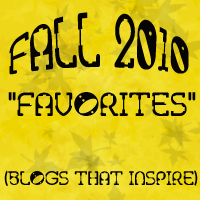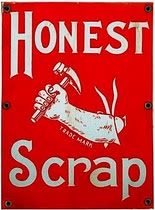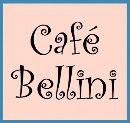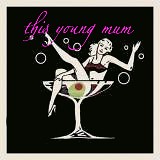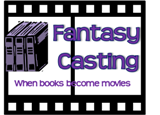First let me say that this novel is not for those who are uncomfortable with graphic violence and sexual content. This serial killer is WAY out there.
In American Psycho, author Bret Easton Ellis introduces us to Patrick Bateman, a well-to-do Wall Street businessman who hangs with other equally boring yuppies and has an affection for Peter Gabriel and Huey Lewis and the News. Patrick is engaged to Evelyn, a woman who he doesn't really care for, and who he suspects is having an affair with his friend. Patrick, Evelyn and their friends spend their nights trying to get into the newest clubs and restaurants, flaunting their wealth and snorting cocaine in bathrooms. While to others Patrick appears to be just another rich guy enjoying life, he spends his nights as a serial killer and having obsessive compulsive tendencies to be absolutely perfect in every way.
It takes a long while before the actual murders start, but throughout the first half of the novel Patrick makes comments to his friends about being a psychopath, but his friends always misunderstand what he's saying or think he's being funny. Patrick has affairs with random women, and it's with these women that he acts out his sick desires, including toture, cannibalism and mutilation. As his ability to keep his public and personal lives separate, Patrick begins to lose control.
I think maybe I'm in too jolly of a mood, and because of that I sort of just robotically read through the novel this time around. I didn't really invest too much feeling in it, which is strange for me, especially since this story is so disturbing. After publishing American Psycho, Ellis received a great deal of complaints, and "concerned" groups even tried having the book banned in various cities. Although yhr novel contains some truly dark and awful content, Ellis' ability to create such a complex character is deserving of at least the same courtesy as Stephen King.
Up Next: The Great Gatsby by F. Scott Fitzgerald
Thursday, November 18, 2010
The Good Old Days
Every once in a while I'll be watching an old movie, or having a conversation about the good old days and I'll suddenly remember something from my childhood/teen years/early 20s that I loved so much, but have since forgotten. Some of them are things I just took for granted, and some are things that have been replaced with "bigger and better" in the world of technology and television. Here are some of the things I really miss from the days when life was about having fun and being fancy free:
MTV's Singled Out
How awesome was this show?! Jenny McCarthy and that guy who looked like the older
brother from Boy Meets World matching up 20-something singles by way of game show.
It was raunchy, dirty and funny. I loved it.
Sleeping In
Ah, the days before having children who think sunrise is the perfect time to wake up.
Impulsive Road Trips
It's Friday afternoon and you're off the next Monday. You're bored.
Friend says, "Hey, let's go to Atlanta." You say, "Okay!" Good times.
Writing notes
You remember....spending an entire class period doodling little designs and writing your
friend's name out in multiple colors and shapes, then writing the note in alternating ink colors.
After that, of course you had to fold it in some strange, awesome way.
Snail mail
Before the e-mail/chat/facebook era. They usually started out, "Dear Jess." I have a storage bin full of letters from friends who lived in different states. We all used to write each other at least once a month before internet killed the postal service. Sometimes I really hate the internet (until I remember if it weren't for internet I couldn't blog with you fine people, and then I get over it).
Summer vacation
No school, no work, no getting up early. Nothing but fun, sleeping in, swimming and general laziness.
Also, watching The Price is Right all morning because there's nothing else on tv.
Watching a movie for the 100th time and suddenly getting a
grown-up joke or understanding what's really going on.
Above is one of the best examples. I watched this movie a gazillion times as a child,
and then one day when I was about 14, I realized what he was doing.
I screamed, turned off the movie and didn't watch it again until I was 17.
Believing in Santa Claus
My sister and I every year would try to stay awake all night so we could meet him.
We always fell asleep though. I think Mom was slipping us NyQuil....
Slumber Parties
Makeovers, "light as a feather, stiff as a board," movie marathons, giggling, all-around fun. (P.S. I'm pretty
sure the kid at the bottom right and the kid at the top left of the picture are boys. This concerns me a little...)
Being in a band
I was in a band with four of my best friends from my church youth group when I was 15-16. We practiced
more than anything (we only actually played in front of people ten or eleven times), but we had a blast.
What are some of the things you really miss?
Wednesday, November 17, 2010
Book Three of the 7 Fantabulous Re-Reads: Island of the Blue Dolphins
The first time I read this novel, about sixteen years ago, I loved it. We had to read it for school, and I so enjoyed the story of Karana that I read it through three times before the rest of my class had finished it.
The Island of the Blue Dolphins (so named because if you stand at the highest ridge on the island, the island appears to be in the shape of a dolphin) is a small island, inhabited by a tribe of Indians, the tribe of Ghalas-at, with the chief's daughter Karana as the main character. Karana's mother died years before so she and her older sister care for their father and younger brother, Ramo.
The Ghalas-at tribe is peaceful, and are only cautious and weary when a group of men, called Aleuts, show up on the island to hunt otter. Karana's father allows the men to hunt on the promise that they will share half of their catch before they leave at the end of the summer. When the time comes for the Aleuts to leave, it becomes evident they have no intention of making good on their word, so the chief and the men of the tribe go to the beach to confront the men. A battle breaks out, and most of the men, including the chief, are killed.
A new chief is appointed, and he decides the indians need to leave the island. He leaves to find a new land and promises to return with a ship. The tribe waits for him for a long time, but he does not return. After winter passes, a ship comes to take the tribe, as they were instructed by the chief. They all leave the island, but in the process Karana is separated from Ramo. As the ship is sailing away, she sees that Ramo has been left behind on the island, but the captain will not turn around so Karana jumps ship and swims back to her brother. The ship sails away, leaving the two of them all alone.
Almost immediately Ramo is killed by wild dogs, and Karana finds herself alone, without weapons and unsure of how to make them. She can't bear to stay in the village, so she burns it down and decides to find a new place to live. She begins to learn how to make weapons and use them, build a shelter, mend canoes and fight off the wild dogs.
As time passes, Karana learns that she is capable of doing anything she sets her mind to, and finds that although she is alone, she can befriend some of the local animals to ease the loneliness. She tames a wild dog, catches birds, helps an injured otter and tries, but fails, to keep a fox as a pet.
The story is one of great personal growth and survival. It's actually based on a true story, which makes it even more interesting. The novel is only 181 pages, and it's meant for young readers, so it's a quick and easy read. I still suggest it to anyone and everyone, because Karana is such an endearing character.
Next up: American Psycho!
The Island of the Blue Dolphins (so named because if you stand at the highest ridge on the island, the island appears to be in the shape of a dolphin) is a small island, inhabited by a tribe of Indians, the tribe of Ghalas-at, with the chief's daughter Karana as the main character. Karana's mother died years before so she and her older sister care for their father and younger brother, Ramo.
The Ghalas-at tribe is peaceful, and are only cautious and weary when a group of men, called Aleuts, show up on the island to hunt otter. Karana's father allows the men to hunt on the promise that they will share half of their catch before they leave at the end of the summer. When the time comes for the Aleuts to leave, it becomes evident they have no intention of making good on their word, so the chief and the men of the tribe go to the beach to confront the men. A battle breaks out, and most of the men, including the chief, are killed.
A new chief is appointed, and he decides the indians need to leave the island. He leaves to find a new land and promises to return with a ship. The tribe waits for him for a long time, but he does not return. After winter passes, a ship comes to take the tribe, as they were instructed by the chief. They all leave the island, but in the process Karana is separated from Ramo. As the ship is sailing away, she sees that Ramo has been left behind on the island, but the captain will not turn around so Karana jumps ship and swims back to her brother. The ship sails away, leaving the two of them all alone.
Almost immediately Ramo is killed by wild dogs, and Karana finds herself alone, without weapons and unsure of how to make them. She can't bear to stay in the village, so she burns it down and decides to find a new place to live. She begins to learn how to make weapons and use them, build a shelter, mend canoes and fight off the wild dogs.
As time passes, Karana learns that she is capable of doing anything she sets her mind to, and finds that although she is alone, she can befriend some of the local animals to ease the loneliness. She tames a wild dog, catches birds, helps an injured otter and tries, but fails, to keep a fox as a pet.
The story is one of great personal growth and survival. It's actually based on a true story, which makes it even more interesting. The novel is only 181 pages, and it's meant for young readers, so it's a quick and easy read. I still suggest it to anyone and everyone, because Karana is such an endearing character.
Next up: American Psycho!
Tuesday, November 16, 2010
Book Two of the 7 Fantabulous Re-Reads: Fried Green Tomatoes at the Whistle Stop Cafe
First off, I have to make a confession with this one. Usually I insist on reading novels before ever watching a film, but it was reversed this time. The movie Fried Green Tomatoes has been one of my most favorite movies since I was very young. My mother, aunts and older cousins all watched it all the time, and it soon became a beloved to me as well. It wasn't until my preteens that I realized the movie was based on a novel, and of course, I had to read it then.
Fried Green Tomatoes at the Whistle Stop Cafe by Fannie Flagg is more a favorite novel because of the movie, I think. The novel isn't absolutely fabulous, or even very captivating. I love it because it gave me more insight to the characters, and specifically, it let me see deeper into the relationship between Idgie and Ruth.
The novel is one of those odd works that continually flashes from the past to the present, and all over the place, so it takes a few pages before you adjust. Evelyn Couch is a middle-aged woman, afraid of death and afraid of life. She's in a loveless marriage, and constantly confused by the way people act. On a routine visit with her mother-in-law at a retirement home, Evelyn meets Ninny Threadgoode. Ninny is another "guest" at the retirement home, and her ramblings about the old days soon catch Evelyn's attention as she learns about life in the 30s and 40s in Whistle Stop, Alabama.
The Threadgoode family is one of the largest and most well-known in town. They treat colored peopel fairly and are the most generous people around. Their home becomes the favored place for picnics, weddings and celebrations. People meet and fall in love at the Threadgoode home, and Ninny's stories mostly revolve around young Idgie Threadgoode, the tomboyish baby of the family. After Idgie's older brother and best friend Buddy dies, Idgie refuses to get close to people. This goes on for a few years, until a young woman named Ruth comes to stay with the Threadgoodes for the summer as a church youth aid. Young Idgie immediately becomes infatuated with Ruth, and an odd relationship begins between the two.
The novel takes us simultaneously through Evelyn's personal crises and the war, depression and everyday life of a small Alabama town. The more Evelyn learns about Idgie, the more confident she becomes. She begins to think of herself as having an alter ego, Towanda, whose only goal is to right wrongs and take down evildoers. It's hilarious, really. She almost seems as if she's going off the deep end.
At the same time, we see Ruth move away to be married to a Georgia man named Frank Bennett, and Idgie is heartbroken. Ruth's devil of a husband is abusive, and she eventually gets the nerve to leave him and rejoin Idgie in Whistle Stop. Soon after Ruth's return, she realizes she is pregnant. Ruth and Idgie open a small cafe and after Ruth's ex-husband comes sneaking around, he mysteriously disappears. Investigators suspect Idgie and her hired man Big George, but no body and no evidence leads them to drop the case. Years later, though, Frank Bennett's truck is found near Whistle Stop, and Idgie and Big George are charged with murder.
While reading the story, Idgie and Evelyn become similar characters in your mind, and you root for them both fervently because they're such wonderful characters.
Although I enjoy the novel, I have to say that this is the one and only exception where I love the movie more than the book.
Next up: Island of the Blue Dolphins by Scott O'Dell
Fried Green Tomatoes at the Whistle Stop Cafe by Fannie Flagg is more a favorite novel because of the movie, I think. The novel isn't absolutely fabulous, or even very captivating. I love it because it gave me more insight to the characters, and specifically, it let me see deeper into the relationship between Idgie and Ruth.
The novel is one of those odd works that continually flashes from the past to the present, and all over the place, so it takes a few pages before you adjust. Evelyn Couch is a middle-aged woman, afraid of death and afraid of life. She's in a loveless marriage, and constantly confused by the way people act. On a routine visit with her mother-in-law at a retirement home, Evelyn meets Ninny Threadgoode. Ninny is another "guest" at the retirement home, and her ramblings about the old days soon catch Evelyn's attention as she learns about life in the 30s and 40s in Whistle Stop, Alabama.
The Threadgoode family is one of the largest and most well-known in town. They treat colored peopel fairly and are the most generous people around. Their home becomes the favored place for picnics, weddings and celebrations. People meet and fall in love at the Threadgoode home, and Ninny's stories mostly revolve around young Idgie Threadgoode, the tomboyish baby of the family. After Idgie's older brother and best friend Buddy dies, Idgie refuses to get close to people. This goes on for a few years, until a young woman named Ruth comes to stay with the Threadgoodes for the summer as a church youth aid. Young Idgie immediately becomes infatuated with Ruth, and an odd relationship begins between the two.
The novel takes us simultaneously through Evelyn's personal crises and the war, depression and everyday life of a small Alabama town. The more Evelyn learns about Idgie, the more confident she becomes. She begins to think of herself as having an alter ego, Towanda, whose only goal is to right wrongs and take down evildoers. It's hilarious, really. She almost seems as if she's going off the deep end.
At the same time, we see Ruth move away to be married to a Georgia man named Frank Bennett, and Idgie is heartbroken. Ruth's devil of a husband is abusive, and she eventually gets the nerve to leave him and rejoin Idgie in Whistle Stop. Soon after Ruth's return, she realizes she is pregnant. Ruth and Idgie open a small cafe and after Ruth's ex-husband comes sneaking around, he mysteriously disappears. Investigators suspect Idgie and her hired man Big George, but no body and no evidence leads them to drop the case. Years later, though, Frank Bennett's truck is found near Whistle Stop, and Idgie and Big George are charged with murder.
While reading the story, Idgie and Evelyn become similar characters in your mind, and you root for them both fervently because they're such wonderful characters.
Although I enjoy the novel, I have to say that this is the one and only exception where I love the movie more than the book.
Next up: Island of the Blue Dolphins by Scott O'Dell
Sunday, November 14, 2010
Book one of the 7 Fantabulous Re-Reads: The Other Boleyn Girl
On Friday I told y'all that I'm attempting to re-read seven of my most favorite novels in order to make the time between now and November 26th pass faster. Well, book one was a partly-historically-accurate-and-partly-malarky novel about the Boleyn sisters Mary and Anne, and their affairs with England's King Henry VIII.
I love this novel because despite some of the inaccuracies, you feel like you're really getting a glimpse into what life was like for a 15th century courtier and life among royals. Growing up American, we have no real appreciation or understanding of the history of pride in a royal family, or living under the rule of a king or queen. The whole concept of a royal heirarchy and birthrights and all of that is just an alien idea, and that's mostly why, I think, I enjoyed this one so much.
Author Philippa Gregory introduces us to young Mary Boleyn at the young age of 13, having just been married off and starting out in the service of Queen Katherine of Aragon, aka Henry VIII's first wife. Mary belongs to the Howard family on her mother's side, and the Boleyn family on her father's side. The Howards have great ambitions in regards to title, wealth and station. Her uncle, a Howard, is the most ambitious of them all, and the head of the family. When Mary catches the eye of the young, attractive king, her uncle orders Mary away from her husband to seduce and bed the king in order to advance the Howard family.
Mary's older sister, Anne, returns to the court from France soon after she's caught the king's eye, and as Anne is witty, beautiful and smart, it becomes Anne's job to keep the king interested in Mary and away from all other girls vying for his attention. Anne is resentful of her orders because she considers herself to be much better than Mary, and the two are bitter rivals.
Mary is young, unsure and afraid, but she does as she is told, and thus becomes a favorite of Henry and soon finds herself in love with the king of England. After much effort on the part of Mary, Anne, their brother George and the rest of the Howard family, Mary ends up mother to two of the king's children. Despite Mary's good nature and obvious fertility, the king begins to lose interest in Mary, thanks to Anne.
Mary soon learns that Anne has her own agenda, and it is to take Queen Katherine's place as Queen of England. It is clear that Anne is determined, will stop at nothing and will do anything and everything she must in order to take the throne.
As the lies, risks and gambles of the Howard family become more and more outrageous, Mary tires of life in the court and wishes for nothing more than to be left to her children and love.
This book is a delicious read, not only for the saga of Mary and Anne Boleyn and their fight for the throne, but also because it's packed with good humor, some wonderful romance and, of course, an actual love story thrown in as well. Mary's eventual true love interest is a good, honest man and you find yourself rooting so hard for Mary that you really want Anne to lose(which, as we all know, she does).
I don't know if the real Anne Boleyn was anything like she is in this novel, but if so, I don't blame Henry for having her beheaded. The woman was a snake. Awful.
I told the hubs it's a good thing I wasn't living during that time, because I'd have been one of those stubborn women who refused to do as she was told. The hubs laughed and agreed with me. Yes, indeedy.
Next up: Fried Green Tomatoes at the Whistle Stop Cafe by Fannie Flagg
I love this novel because despite some of the inaccuracies, you feel like you're really getting a glimpse into what life was like for a 15th century courtier and life among royals. Growing up American, we have no real appreciation or understanding of the history of pride in a royal family, or living under the rule of a king or queen. The whole concept of a royal heirarchy and birthrights and all of that is just an alien idea, and that's mostly why, I think, I enjoyed this one so much.
Author Philippa Gregory introduces us to young Mary Boleyn at the young age of 13, having just been married off and starting out in the service of Queen Katherine of Aragon, aka Henry VIII's first wife. Mary belongs to the Howard family on her mother's side, and the Boleyn family on her father's side. The Howards have great ambitions in regards to title, wealth and station. Her uncle, a Howard, is the most ambitious of them all, and the head of the family. When Mary catches the eye of the young, attractive king, her uncle orders Mary away from her husband to seduce and bed the king in order to advance the Howard family.
Mary's older sister, Anne, returns to the court from France soon after she's caught the king's eye, and as Anne is witty, beautiful and smart, it becomes Anne's job to keep the king interested in Mary and away from all other girls vying for his attention. Anne is resentful of her orders because she considers herself to be much better than Mary, and the two are bitter rivals.
Mary is young, unsure and afraid, but she does as she is told, and thus becomes a favorite of Henry and soon finds herself in love with the king of England. After much effort on the part of Mary, Anne, their brother George and the rest of the Howard family, Mary ends up mother to two of the king's children. Despite Mary's good nature and obvious fertility, the king begins to lose interest in Mary, thanks to Anne.
Mary soon learns that Anne has her own agenda, and it is to take Queen Katherine's place as Queen of England. It is clear that Anne is determined, will stop at nothing and will do anything and everything she must in order to take the throne.
As the lies, risks and gambles of the Howard family become more and more outrageous, Mary tires of life in the court and wishes for nothing more than to be left to her children and love.
This book is a delicious read, not only for the saga of Mary and Anne Boleyn and their fight for the throne, but also because it's packed with good humor, some wonderful romance and, of course, an actual love story thrown in as well. Mary's eventual true love interest is a good, honest man and you find yourself rooting so hard for Mary that you really want Anne to lose(which, as we all know, she does).
I don't know if the real Anne Boleyn was anything like she is in this novel, but if so, I don't blame Henry for having her beheaded. The woman was a snake. Awful.
I told the hubs it's a good thing I wasn't living during that time, because I'd have been one of those stubborn women who refused to do as she was told. The hubs laughed and agreed with me. Yes, indeedy.
Next up: Fried Green Tomatoes at the Whistle Stop Cafe by Fannie Flagg
Labels:
Fantabulous,
Philippa Gregory,
reading,
The Other Boleyn Girl
Subscribe to:
Comments (Atom)



























